
When you are running a restaurant business, there are so many aspects of the operations that you need to manage properly right from the get go.
It is not just about the food that you serve but it includes branding, menu engineering, inventory management, customer service, staff management, cleanliness culture, cash flow control, marketing and so much more.
All of those factors come into play to determine the success of a restaurant business. However, one of the more important factors that is often being overlooked is inventory management.
What is Inventory Management?
In simple words, inventory management is a process to track your product or perishable items whether it is in-store, from your warehouse, retailers or even from suppliers.
Traditionally, business would use manual methods to keep track of their inventory and it would take up so much time and resources. It would be better if the time and resources can be channeled into other parts of the business.
With the advent of new technology, now restaurant owners have the option of using tools that are simple and can make it very easy for them to check inventory at a glance.
You will no longer spend hours and hours in excel trying to organise all that data manually.
Why is Inventory Management important?
Tracking demand and avoid overstock
By practicing consistent inventory tracking, you can discover which ingredients are in demand and which ones you are overstocking on. You can also track your food usage and it allows you to identify different trends. This helps you anticipate and avoid shortages in the future.
Calculating Cost of Goods Sold (COGS)
COGS is the specific amount of money you’re spending on your inventory. You can have an accurate picture at your profit margins. Apart from that, you can also analyze your budgeting and overall restaurant financial health by using COGS.
Determining Food Costs and Controlling Wastage
Food cost is an important metric for a restaurant’s success. Surprisingly, a lot of restaurants still have their food cost higher than it should. Ideally food cost should be below 40%. Using an automated system like Slurp POS Inventory Management makes taking inventory a first-in first-out as simple and scanning and go.
Slurp! Point of Sale Inventory Management Features
Dashboard
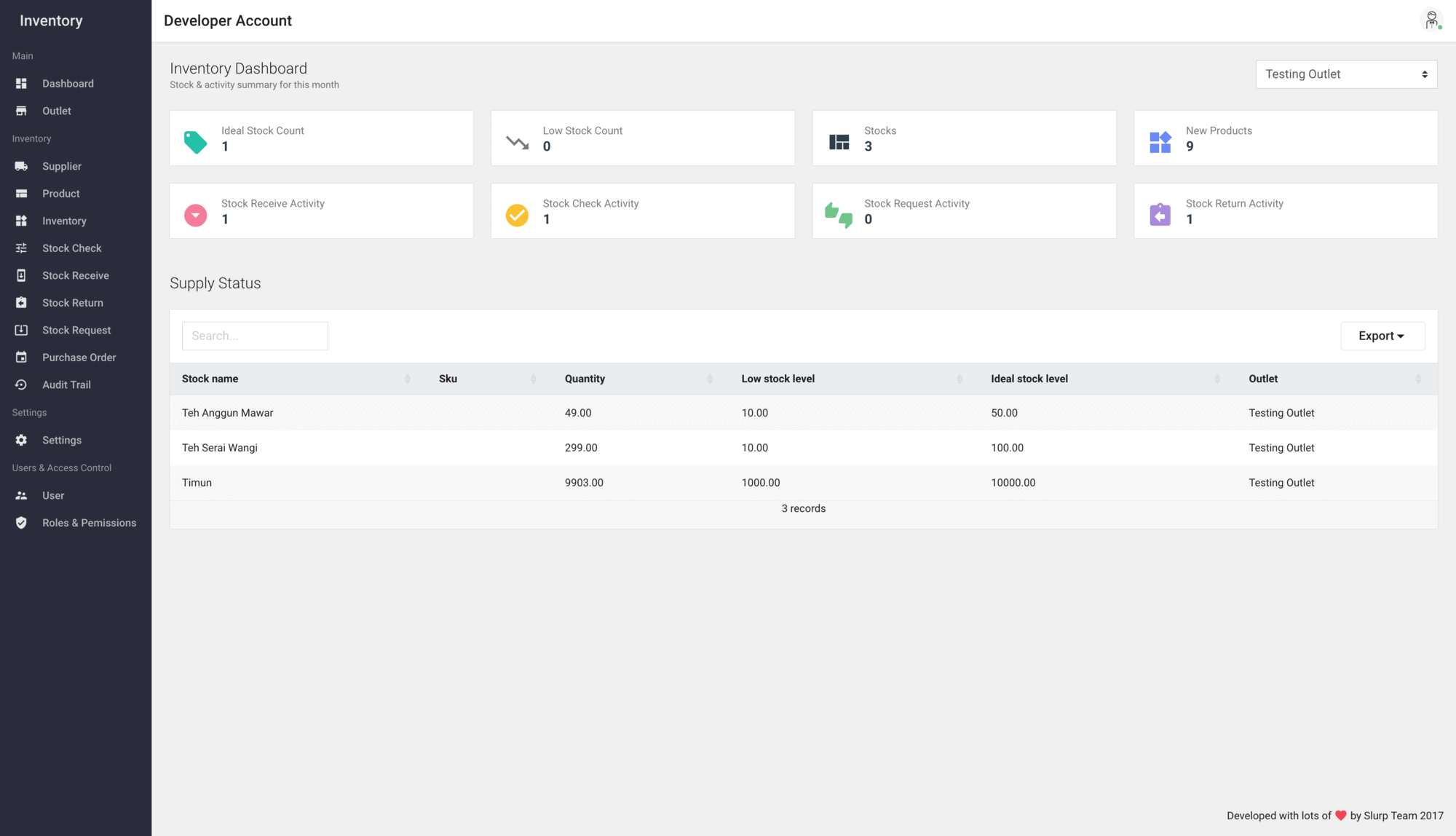
Through the dashboard, managers will get an overview of the real-time inventory activity and status of stocks. A nice feature added here is the stock level warning notification. You will be prompted whenever a stock reaches a low level (that you can determine in settings) so that you can decide to re-stock before it runs out.
Outlet
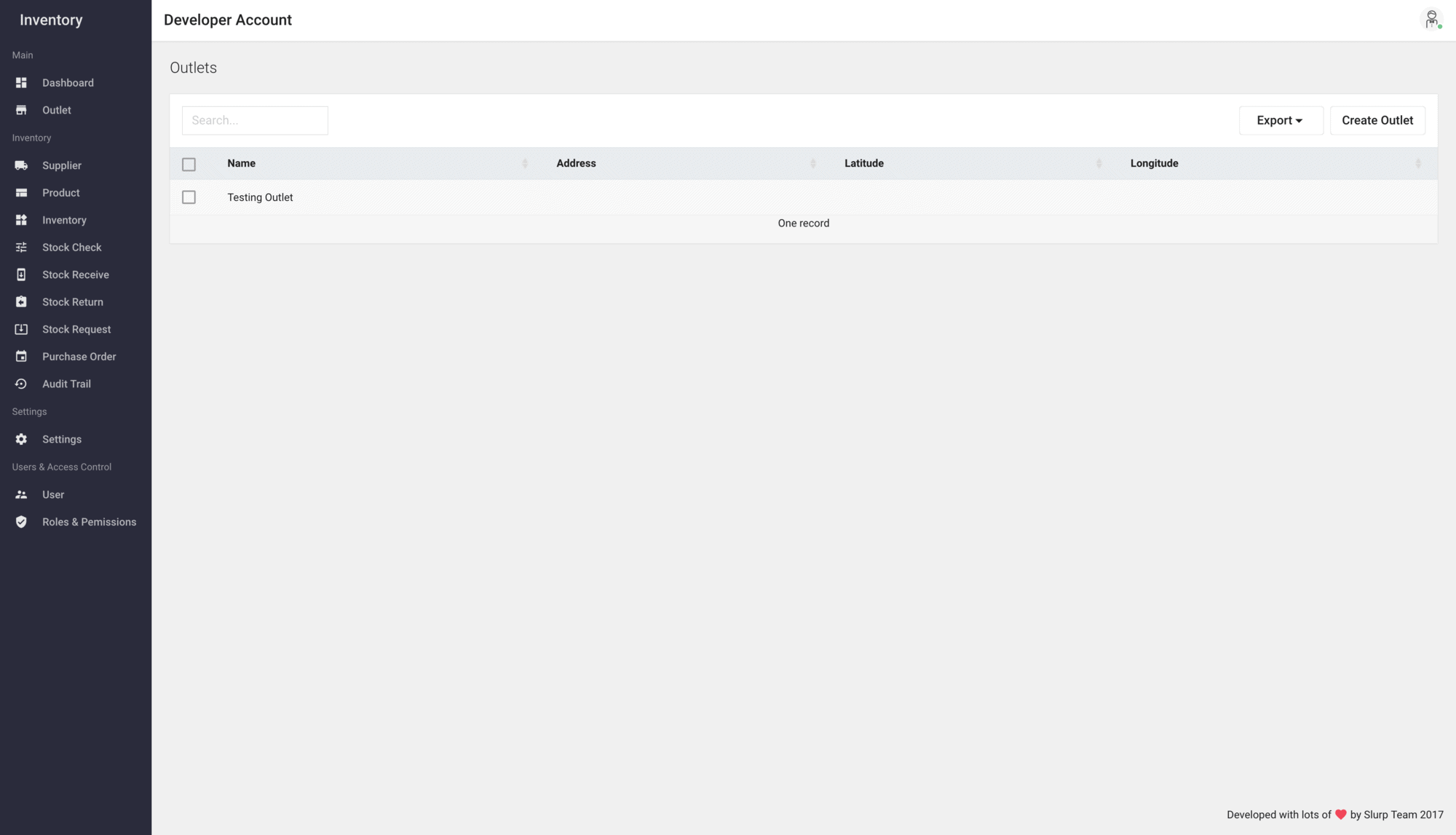
Business owners are able to create multiple outlets within the inventory system and manage multiple outlet all in one place. With this feature, outlets will be able to perform stock requests from other outlets if necessary.
Suppliers
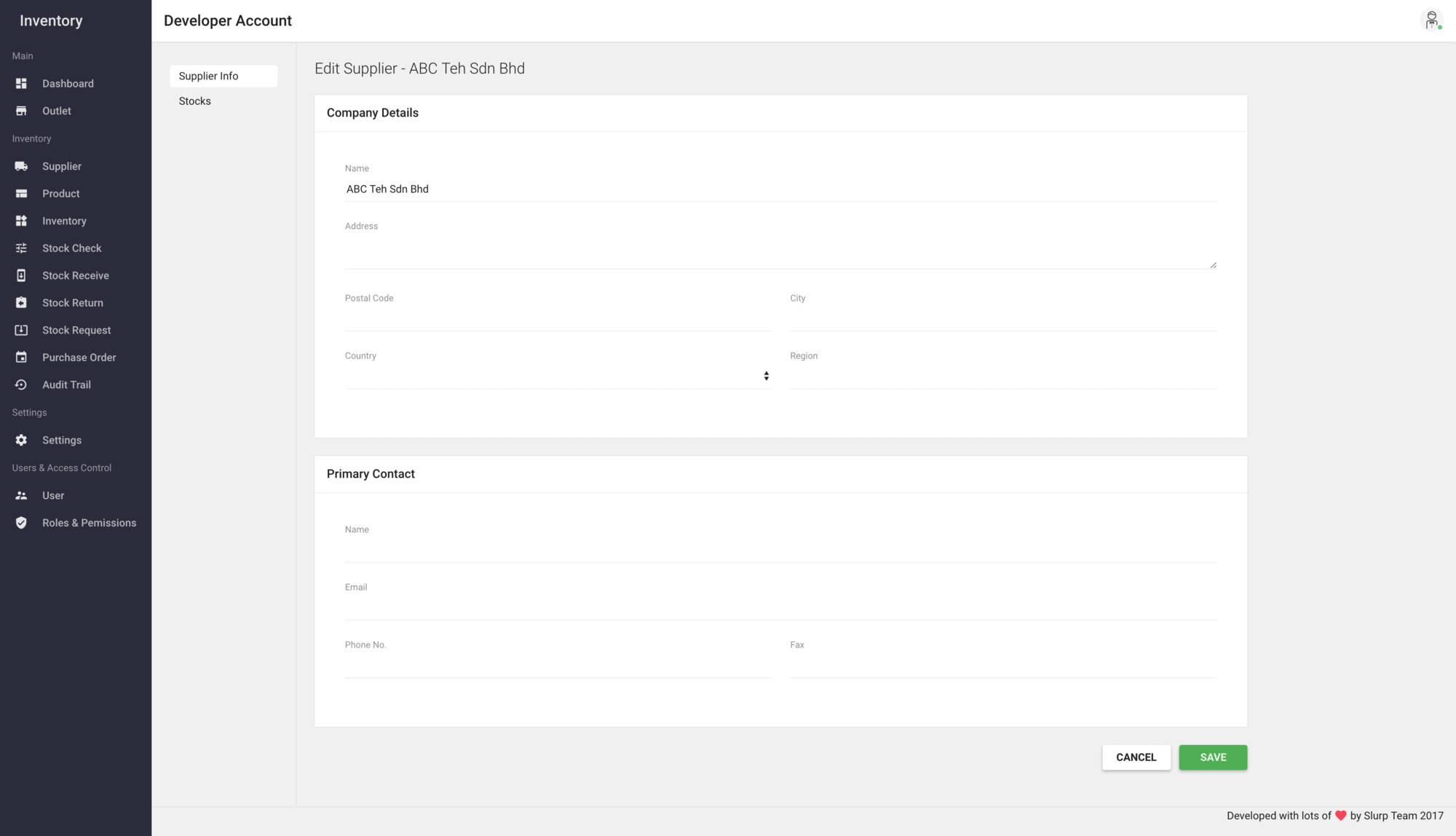
Managing suppliers have never been easier. With Slurp! POS Inventory Management, you will be able to add supplier information and perform task such as stock order or stock return with a breeze.
Products
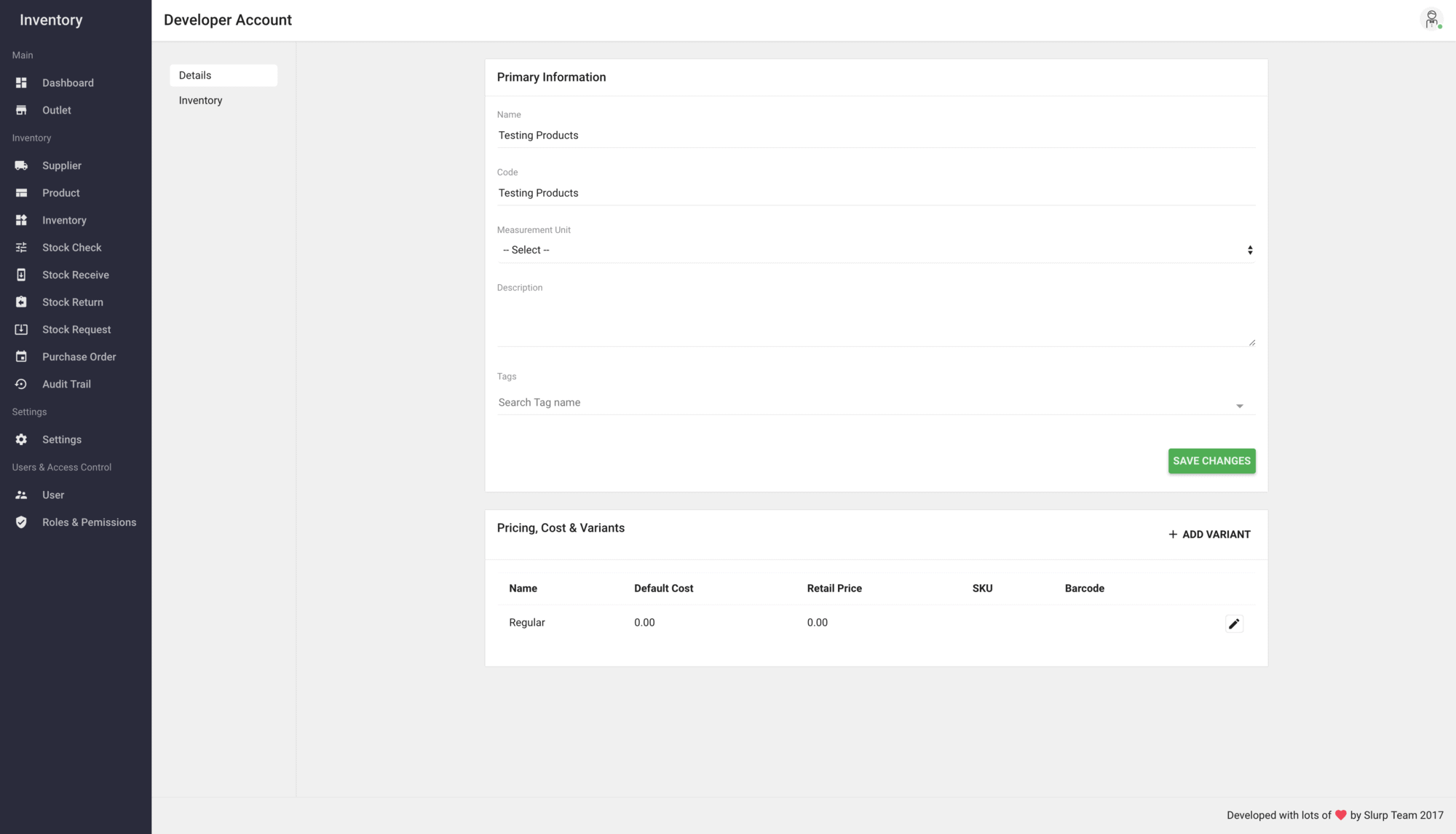
In the product section, businesses can configure the stock into fine details to ensure ease of tracking and count. Attributes available includes Code, Measurement Unit, Tags, Suppliers, Pricing & Variants, Stock Type (simple or composite items). Users can also set up the ingredients or substances of the products.
Inventory
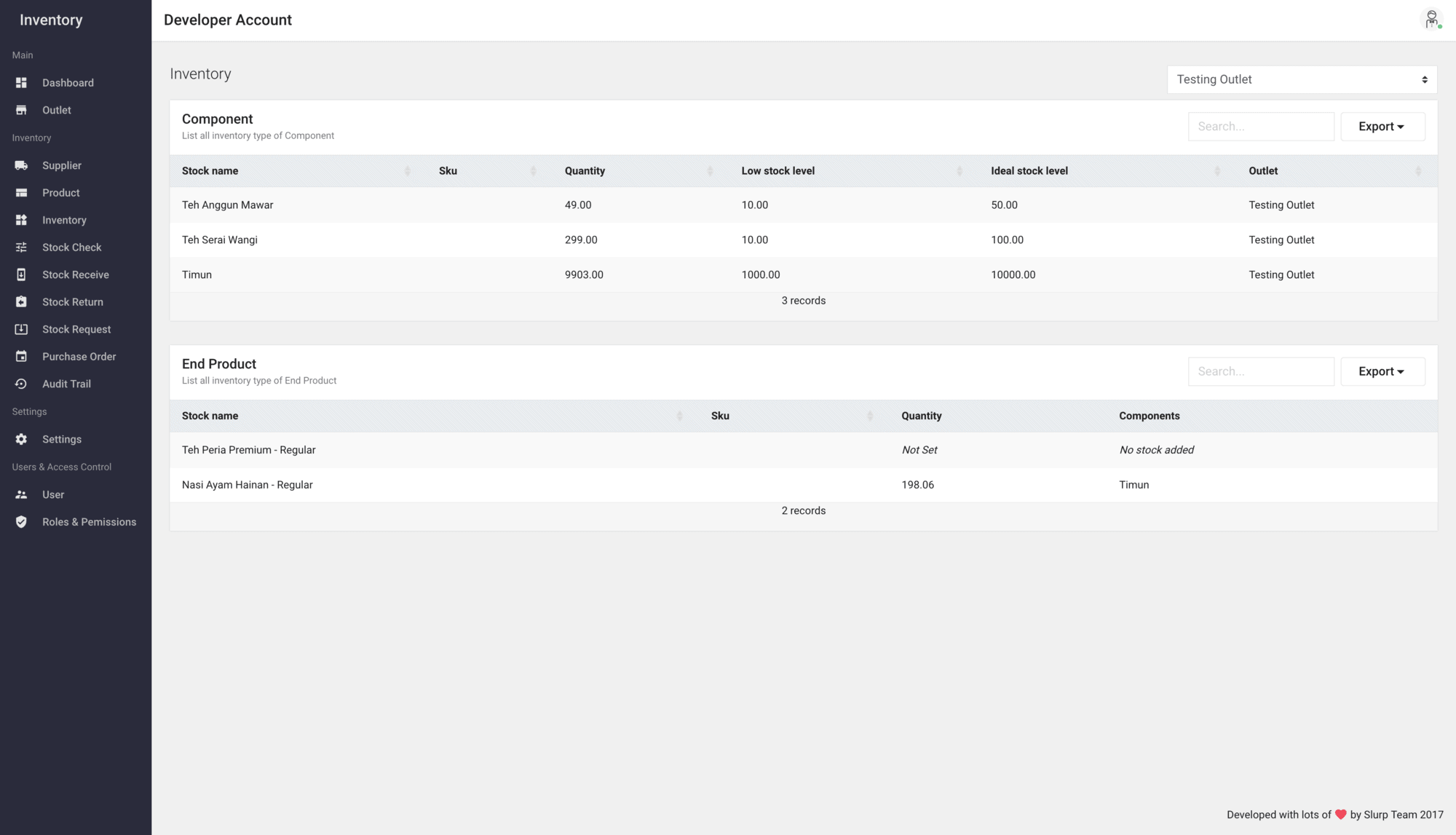
Clear and concise layout of the inventory information and details. It is able to be segregated into two parts, which are component and end product. Components are part of an end product. You can identify the exact amount needed of the ingredient/substance to create a particular end product. End products are the result of a combination of components. You will know exactly how many end products you can produce with the current number of component available at a time.
Stock Check
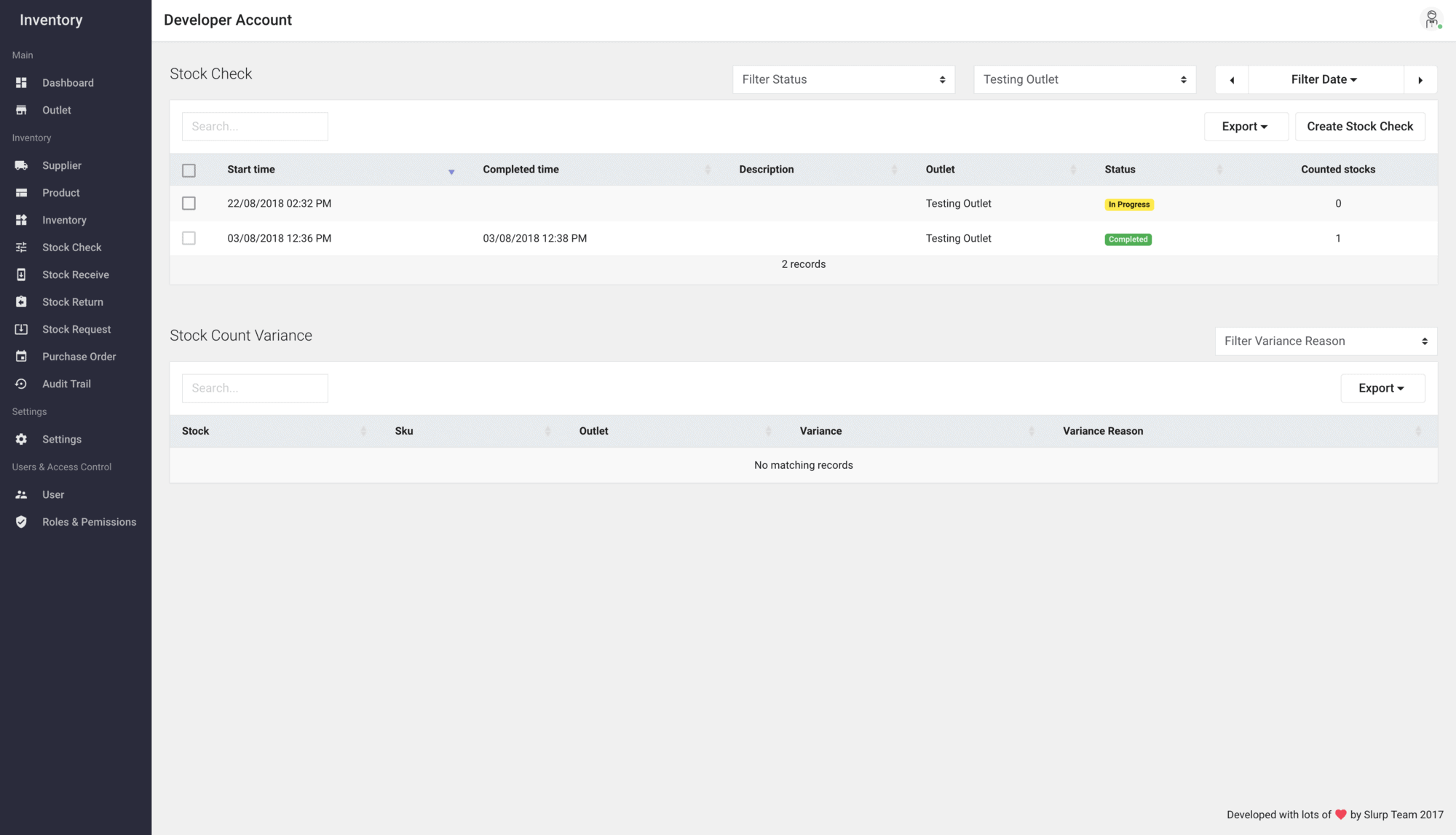
With the stock check feature, you will be able to compare physical stock count against what has been recorded. This feature allows for a more accurate inventory representation while keeping it efficient so you can reduce the time it takes to do a stock check. Never miss any stock changes ever again.
Stock Receive
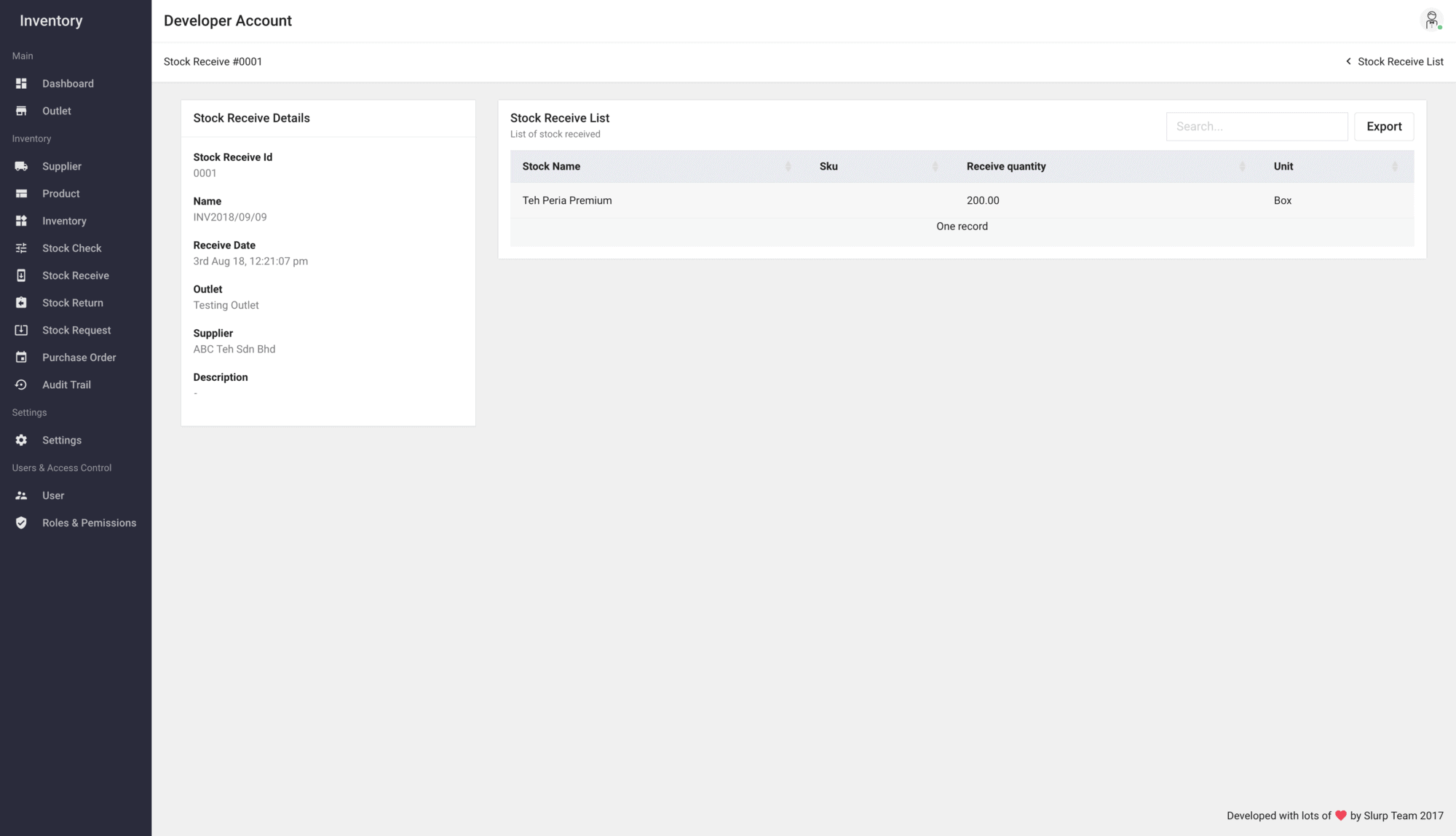
Record stock into your list and keep track of your daily operations. Anytime a stock is added, it will increase the stock count in the inventory tab.
Stock Return
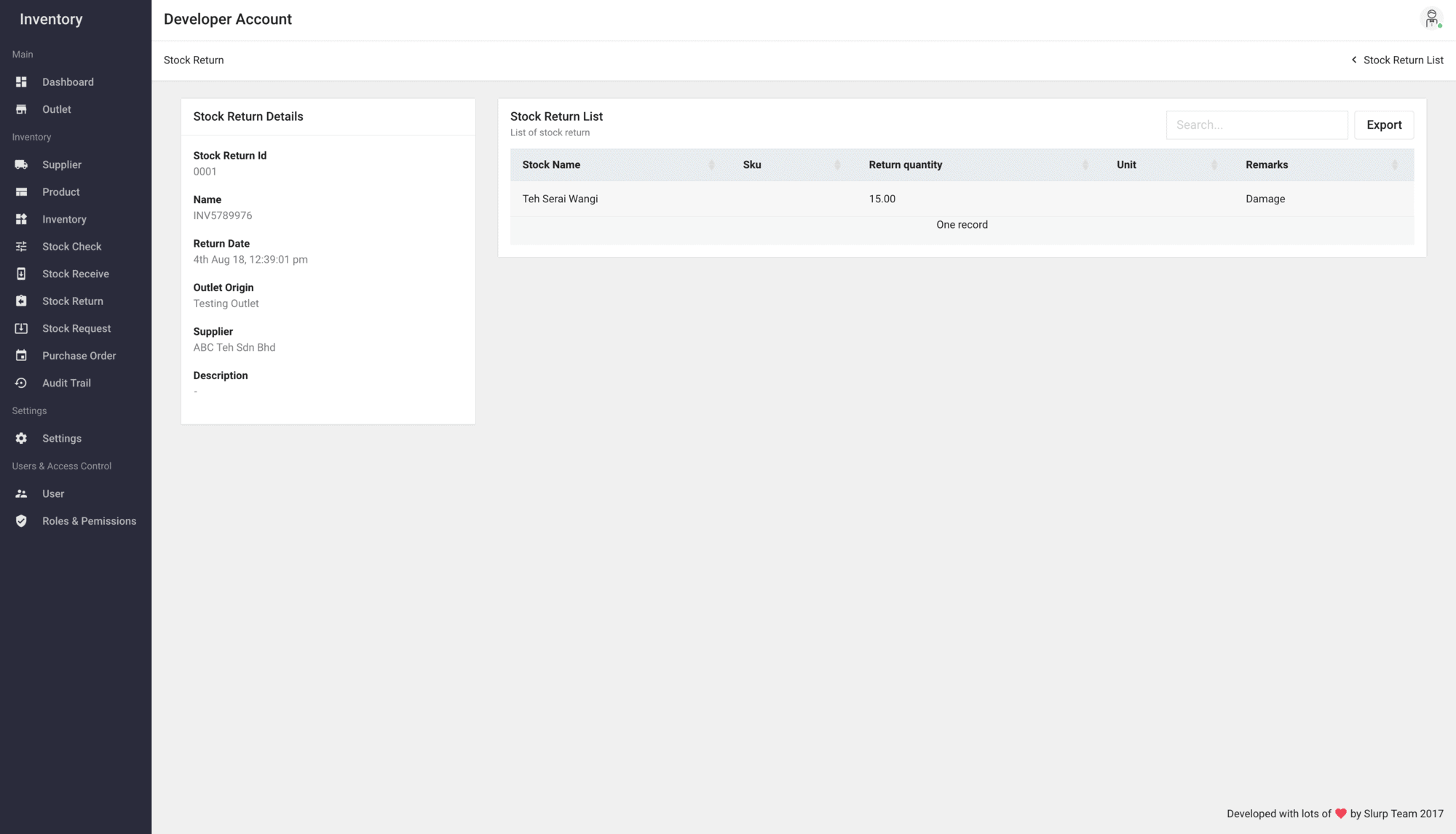
Sometimes, you will need to return stocks to suppliers. Which is why we made it simple for you to do so. By using this feature, you can easily track the stock return activity to suppliers. It will decrease the stock count in the inventory tab.
Stock Request
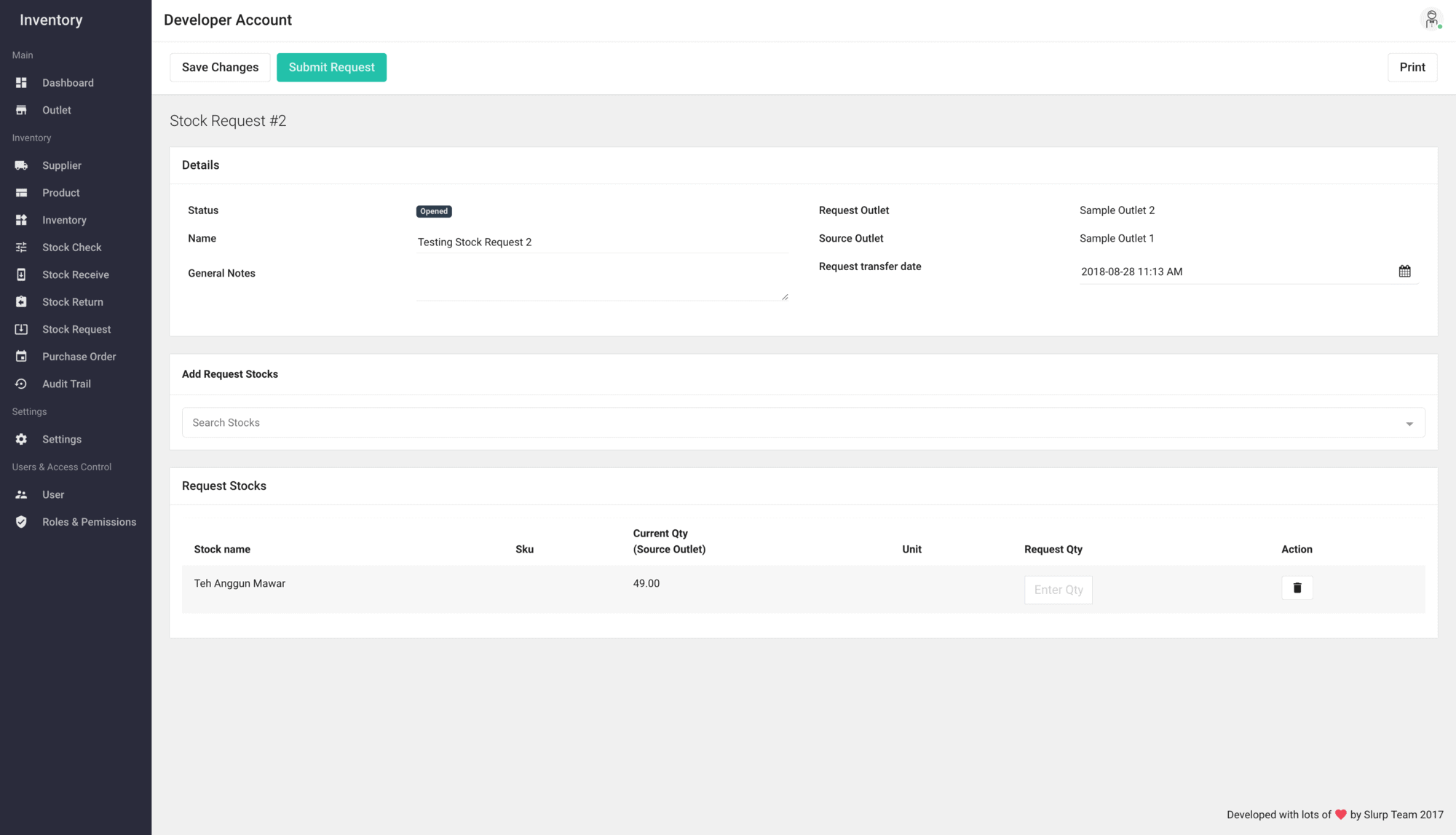
When you have multiple outlets, it is possible for you to request stocks from other outlets while you wait for new stocks to arrive from your suppliers. With this feature, you are able to easily make stock request and track the inventory movements from one outlet to another.
Audit Trail
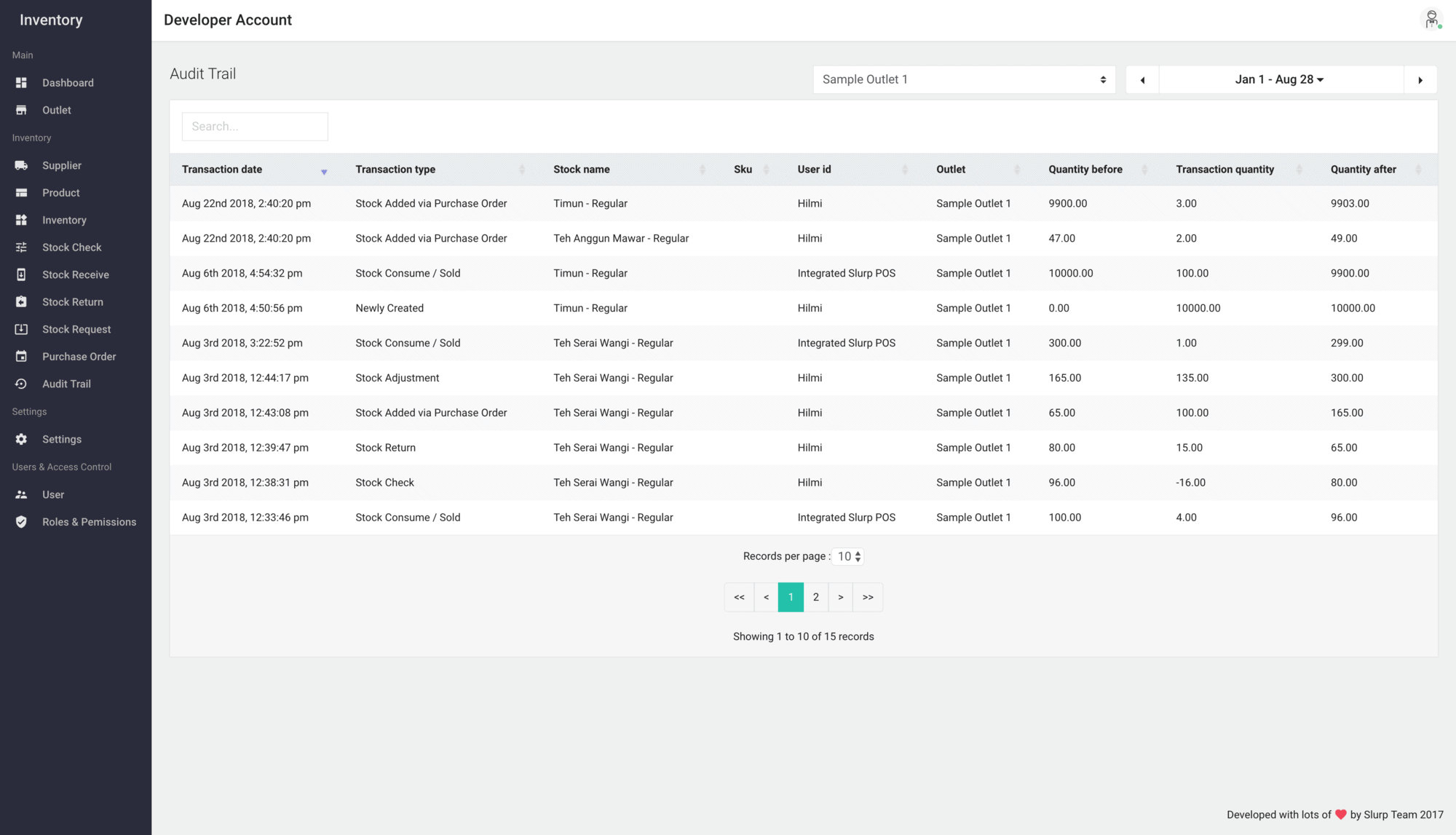
With audit trail, you will be able to track your inventory as it captures every movement of you stock and related activities. It is your reference point fort all stock transactions.
User Roles
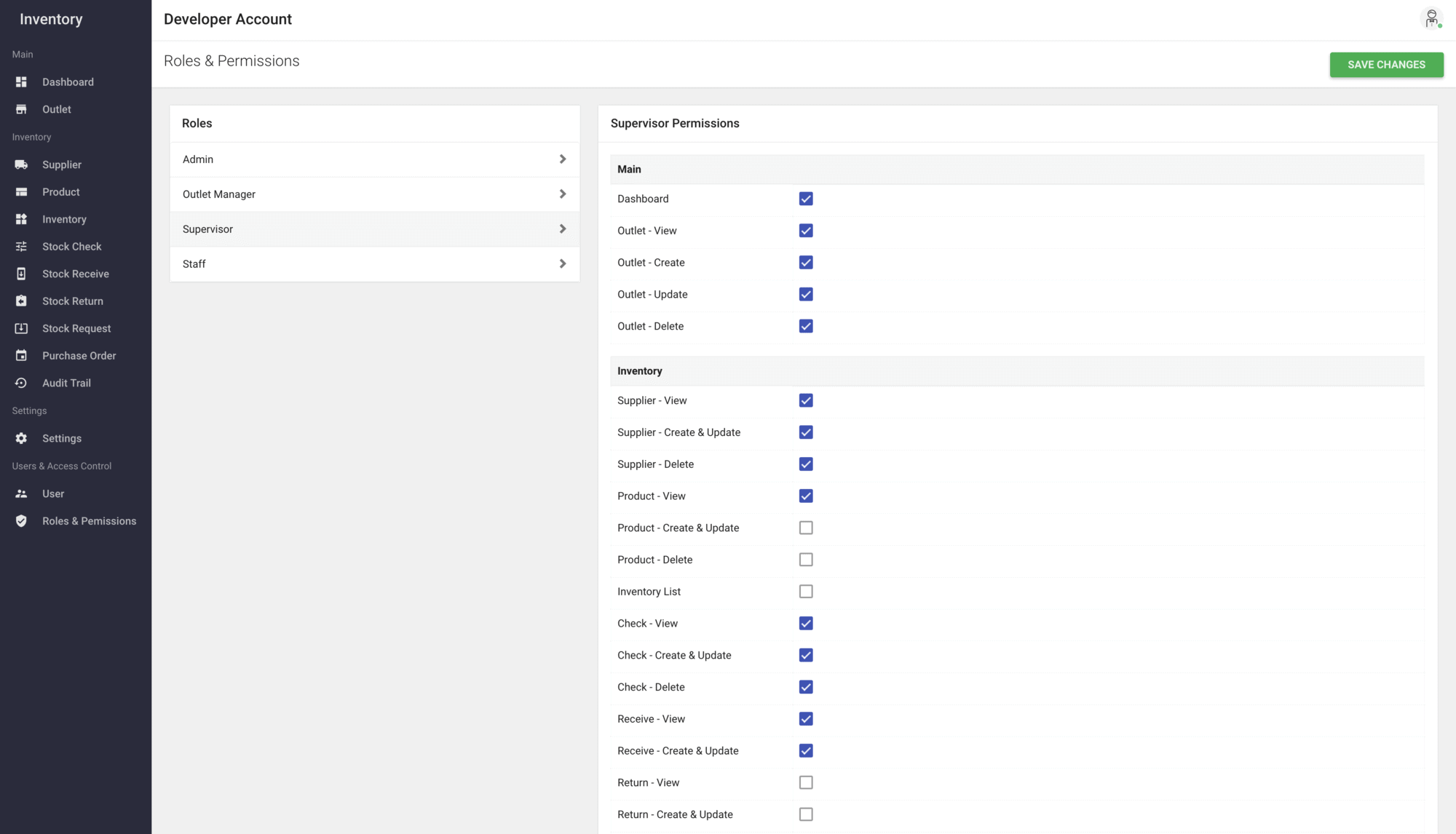
With Slurp! POS Inventory Management, you are able to set user roles. This feature enable you to create a protected access towards your inventory data.
Ready to try Slurp! POS Inventory Management?
Sign up for a demo and get a 1-on-1 consultation for free today!




